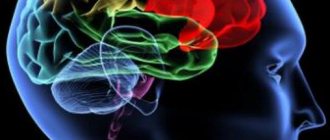The documents of the national educational initiative “Our New School” note that a support system for talented children should be created. Simultaneously with the implementation of the general education standard, an extensive system of searching for and supporting talented children, as well as accompanying them throughout the entire period of personal development, must be built.
It will be necessary to create both a special support system for mature, talented schoolchildren, and a general environment for the manifestation and development of the abilities of each child, stimulation and identification of the achievements of gifted children. In addition, it is indicated that within the framework of the system of supporting talented children, it is advisable to support a creative environment and provide the opportunity for self-realization for students of each secondary school. To do this, it is necessary to expand the system of Olympiads and competitions for schoolchildren, the practice of additional education, various kinds of student conferences and seminars, and work out mechanisms for taking into account individual achievements of students (student portfolios) during admission to universities.
Who is a gifted child?
A gifted child is a child who stands out for his bright, obvious, sometimes outstanding achievements (or has internal prerequisites for such achievements) in a particular activity.
Today, most psychologists recognize that the level, qualitative originality and nature of the development of giftedness are always the result of a complex interaction between heredity (natural inclinations) and the social environment. At the same time, the role of psychological mechanisms of personality self-development cannot be ignored.
Some psychologists believe that gifted children in a regular school do not receive proper understanding from adults and peers, and are subject to ridicule and almost bullying.
Among modern concepts of giftedness, the theory of the famous American specialist in the field of studying gifted children, Joseph Renzulli, can be called the most popular. In his opinion, giftedness is a complex result of the superposition of 3 factors:
- above average abilities
- creativity,
- involvement in the task.
Age limits of giftedness
Many famous scientists, musicians, artists and even writers showed their outstanding abilities at an early age. Everyone knows the brilliant creative achievements of little W.A. Mozart, the outstanding successes in childhood of K. Bryullov, F. Holton, I.I. Mechnikov, K. Gauss, N. Wiener, G. Leibniz, V. Hugo, F. Schubert, M. Mussorgsky, and this list can be continued for a long time. It's no secret that gifted children often become outstanding adults. It is no less often the case the other way around: people who did not express themselves in childhood achieved outstanding results later, in adulthood. Often, outstanding mental potential, as evidenced by the biographies of many famous people, remained unnoticed by others for a long time. For example, biographers of Carl Linnaeus, the great Swedish botanist, note that in childhood his development was slow, but he began to gain fame at the age of 24. The famous Russian writer I.A. Krylov began his literary career relatively late. Among the students of the Tsarskoye Selo Lyceum, A. Pushkin, who was fond of poetry, was not considered the first; A. Illichevsky successfully challenged the “palm of championship”. In childhood, many famous scientists and artists did not stand out among their peers in any way. Naturally, in each such case, the reasons why giftedness went unnoticed are different. The potential may not have manifested itself until a certain time, or perhaps parents and teachers did not pay attention to the subtle movements of the child’s soul, they did not have enough knowledge for this, or their intuition worked. Or maybe, on the contrary, due to a lack of understanding, they did not notice outstanding capabilities in the child and even considered manifestations of creativity and intellectual initiative as negative qualities, and considered completely different ones to be the most valuable. We often encounter parents, school teachers, and university professors who value diligence, obedience, and accuracy above initiative, originality, courage, and independence of action and judgment. A kind of confirmation of this idea was found by American scientists who studied the biographies of 400 outstanding people. The study found that 60% of them had serious problems during their schooling. The results of a long-term study of the development of the same individuals and the corresponding test “measurements” give some idea of a certain instability and age-related variability of intelligence. In the light of such information, it is hardly possible to proceed from the idea of the level of intelligence as a strictly defined characteristic that is given for life.
Conclusion Thus, a child’s giftedness means a higher receptivity to learning and more pronounced creative manifestations than his peers, all other things being equal. The concept of “giftedness” comes from the words “gift” and means particularly favorable internal prerequisites for development. For a long time, very little work was done in our country in our country for a long time in our country. In accordance with the prevailing ideology, it was believed that particularly capable children should not be singled out, that everyone was equal, and that any desired qualities could be “formed” in every child. The concepts of “inclinations” and “giftedness” were seen as something idealistic and harmful. Only in recent years has the problem of differences between children in giftedness “come out of the shadows” and is arousing great interest. The ability to think and create is the greatest natural gift received by man. There are those who are more gifted, there are those who are less gifted, but everyone is marked with this gift. Therefore, when speaking about children's giftedness, experts usually consider an exceptional category of the child population - gifted children and the intellectual and creative potential of each child. But no one knows exactly where the border between a gifted and a non-gifted child lies. It is even more difficult to determine who in the future will reach the heights of genius and who will have a more modest role. One thing is certain: the intellectually creative potential of both gifted children and those who do not belong to this category needs special development.
Source: Scientific and theoretical conference “Problems of giftedness of students”: materials of the final control of knowledge of students of basic courses for history teachers. – Vitebsk: UE “VOG IPK i PRR i SO”, 2008.
Is it good to be gifted?
Of course, a child’s development cannot be limited only to the family. But not every type of giftedness is related to school and finds conditions for development there. For example, the so-called social (leadership) talent, for obvious reasons, is not always encouraged by teachers and even parents. They simply don't know what to do with such children.
Early manifested talent in the arts (musical, artistic, acting) or in sports probably has no direct relation to school either. Often such a child does not feel very comfortable at school: due to constant employment, he communicates less with classmates, and often misses classes due to concerts or competitions. Such children often have emotional problems due to high competition with other children in their “specialty.”
They were considered stupid...
Neighbors, acquaintances, and teachers considered Thomas Alva Edison He was absent-minded, studied poorly, and also had hearing problems. His parents had to pick him up from school.
Photo: Gettyimages
Ilya Mechnikov was known as a loser as a child and endured the ridicule of his brothers and their contemptuous attitude. The only thing where he was head and shoulders above everyone else was botany. He paid his brothers 2 kopecks just to listen to him.
Photo: Gettyimages
Giftedness at school
Other types of giftedness are important for success in secondary school. There are children with a pronounced ability to learn, to assimilate the educational material offered to them. Moreover, they demonstrate this ability regardless of the difficulty of the subject and their own interests. This is the so-called academic giftedness . Children with this type of giftedness have a much easier school life, and their successes make their parents happy. And subsequently it is easier for them to get a good specialty and achieve success in their work. It is generally accepted that such children usually do not reach any special heights.
Other schoolchildren are distinguished by special intellectual talent: the ability to think, compare, highlight the main thing, draw independent conclusions, make predictions, etc. But, unfortunately, the success of such children most often depends on their attitude, interest in the subject and its teacher. They may study unevenly (either “five” or “two”): brilliantly in one subject and “so-so” in another.
A special type of giftedness is creative talent . This does not only mean abilities in visual, musical or literary activities. Creative talent is, first of all, a non-standard perception of the world, originality of thinking, and a rich emotional life.
...and idolized
Sergei Prokofiev was an adored child in the family; his parents became his first teachers in Russian, arithmetic, geography, and history. By the age of 6, he had already written three plays.
Photo: Gettyimages
Charles Gounod was multi-talented: he composed sacred music, drew beautifully and wrote talentedly. His parents were also extraordinary people and supported their son.
Photo: Gettyimages
Specifically
What is life like for gifted children at school?
No easier than any other child. At the same time, children with a specific type of giftedness may have different adaptation problems. Perhaps the easiest to adapt to in school are the “academically gifted.” They delight parents and teachers with their successes. They don’t have any special problems communicating with their peers - they are always ready to explain something, help, even “let them copy it off.” And their extracurricular interests usually do not differ from the interests of their classmates.
“Intellectuals” are treated condescendingly at school. They admire their abilities in one area (for example, physics or mathematics) and sometimes forgive complete failure in something else (for example, illiteracy in writing). They often delight the school with their brilliant successes at competitions at various levels. These children are often so absorbed in their intellectual hobbies that they do not feel much need for attention from their classmates. Although they may also have quite persistent selective attachments (for example, among admirers of their “talent”).
Sports and musical abilities in children are revealed quite early. If such schoolchildren achieve very high results in their field, they almost cease to attend a regular public school due to their busyness. Classmates and teachers are left to admire their achievements from afar. Such children often experience emotional distress due to high competition in their “professional” environment.
Some psychologists believe that creatively gifted children in a regular school do not receive proper understanding from adults and peers, and are subject to ridicule and almost bullying. Therefore, the solution is to “place” them in special schools for the gifted.
However, not all experts agree with this point of view. If a child is talented, this does not automatically mean that he will be incompetent in communicating with his peers. Sometimes such children show arrogance towards the children around them (“What should I talk to them about?”) or towards their teachers (“What can they teach me?”). In this case, communication problems will arise. But this is rather a cost of family upbringing, and not at all an attribute of creative talent. Most often, children with artistic, artistic, and poetic abilities enjoy well-deserved admiration in their home class, fame at school, and all kinds of support from teachers.
Ambidextra and ambitcerebral talent
In the last few years, a third variant of gifted children has been identified - ambidextrous (equally high development of the right and left hemispheres). This type looks like dual behavior (like two children in one) or hyperactivity disorder (ADHD). Up to a certain point, the hemispheres work alternately or the abilities inherent in one of them are noticeable. Equal expression of hemisphere activity occurs spontaneously. This literally looks like a breakthrough and a big leap in development. This is the moment of peak brain development. Nowadays, ambidextrous people reach full maturity on average by the age of 16.
Since 2008, psychologists have identified especially gifted children, or ambitcerebral children, among ambidexters. Their hemispheres not only work simultaneously and in parallel, but also solve different problems. For example, a child writes different texts with both hands at the same time. The peak of mental development of especially gifted children occurs even later than that of ambidextrous children - 23-27 years.
The problem is that before this peak, children look overly infantile and developmentally delayed. They have difficulty graduating from school, and have difficulty mastering a profession. But as soon as the leap occurs, they demonstrate outstanding abilities. They become successful professionals and get a well-paid position. It is possible that Albert Einstein belonged to this category (he was kicked out of college twice for problems with mathematics).
Why are there difficulties in diagnosing gifted children?
Identification of gifted children is a long process associated with an analysis of the development of a particular child. Effective diagnosis of giftedness through any one-time testing procedure (based on intelligence, memory, etc.) is simply not feasible. The point is not only the impossibility of creating a comprehensive test, but the special property of giftedness as a systemic and developing quality of the psyche that determines a person’s ability to achieve outstanding results.
Psychologists recommend that instead of a one-time selection of gifted children, efforts should be directed toward their gradual, step-by-step identification and support in the process of education under special programs (in the system of additional education) and in the process of developmental education (in a general education school).
First of all, it is necessary to extremely reduce the likelihood of an error that can be made in assessing a child’s giftedness using both positive and negative criteria: since high values of one or another indicator are not always evidence of giftedness, then low values do not yet become evidence of its absence. This circumstance is especially important when processing and interpreting the results of psychological testing.
High scores on psychometric intelligence tests (Guilford, Torrance) may only indicate the degree of training and socialization of the child, but not his intellectual talent. In turn, low scores on the creativity test (Williams, Tunick) may be associated with the child’s specific cognitive position, but not with his lack of creative abilities.
Moreover, the problem of identifying gifted children has a clearly defined moral and ethical aspect, and it is necessary to adhere to the principles of humanistic diagnostics. Many life conflicts between the gifted and the non-gifted are rooted in the inadequacy (even frivolity) of the initial forecast of their future achievements. It should be borne in mind that childhood talent does not guarantee the talent of an adult. Consequently, not every talented adult showed himself to be a gifted child in childhood. Therefore, identifying a child as gifted or as ordinary at an early stage means artificially interfering with his fate, predetermining the subjective expectations of both himself and his parents.
Forms of manifestation of children's talent
Giftedness that manifests itself clearly and clearly in a child’s activities is called overt . Veiled, disguised - called hidden or latent giftedness. There is another, very similar gradation - actual and potential giftedness. Manifested, obvious talent, noticed by psychologists, teachers, and parents, is called actual. Children who demonstrate actual giftedness are often called not gifted, but talented children. And, on the contrary, giftedness, which represents only certain mental capabilities (potential) for high achievements, but cannot be realized at the moment in activity due to their functional insufficiency, is called potential. The facts of the existence of actual and potential, obvious and hidden, early and late giftedness emphasize the complexity and importance of the problem. What signs, personality traits, character traits, characteristics of behavior and activity can indicate to an adult that a child may become an outstanding scientist, artist, or leader in the future? The answer to this complex question cannot be simple. Scientists have already discovered a number of patterns that make it possible to predict a child’s future, but there is still a long way to go to an algorithm for constructing reliable, well-founded forecasts. World pedagogical experience shows that often faith in the capabilities of a student, multiplied by the skills of parents and teachers, is capable of creating pedagogical miracles. In life, it often turns out that what is important is not even what nature has given to a person, but what he himself has been able to do with the gift that he has. This problem is related to another, no less important. The mental potential of a person is not static, it exists only in dynamics and is constantly changing. Therefore, many scientists devoted their research to studying human productivity at various periods of his life.
How to help unleash your creativity
1. When you go out with your child for a walk, even if he is still sitting in a stroller, put your phone in your pocket. Try to talk to your child as much as possible, show and name what surrounds him: “This is a tree, it’s big, tall, this is a flower, look how beautiful it is!” A child's vocabulary begins to expand long before the child begins to speak.
2. Read books to your child, pronouncing all the words. Pay attention to the illustrations and details. Ask: “Who is the bunny looking at?”, “Where did the fox run?” and so on. Is your child silent and unresponsive? Give the answer yourself: “The bunny is looking at the house (of the wolf, the grove...)”, “The fox is running to the lake (into the forest, onto the path...).”
3. When active speech begins, watch how it develops. Speech disorders are usually very closely related to the functioning of the brain. Remember: gifted children may speak later than usual, but they immediately begin to speak a lot and quite correctly. But if at three years of age there is still no speech, perhaps this is a reason to contact a speech therapist.
4. Preschool age is the age of play. When purchasing new toys, choose ones that will allow your child to use them creatively.
5. Keep a diary of your child’s development; up to the age of 7, development proceeds at a gigantic pace. Write down your child's ideas, statements, and compositions. Pay close attention to all his creative manifestations!
Meanwhile











